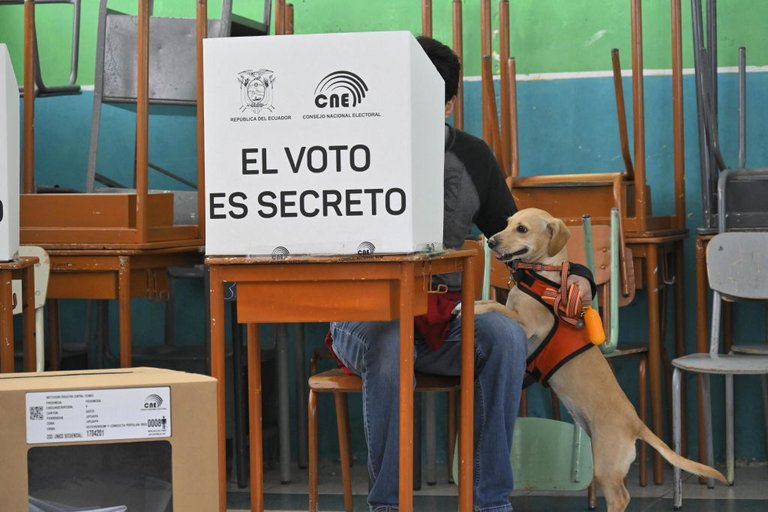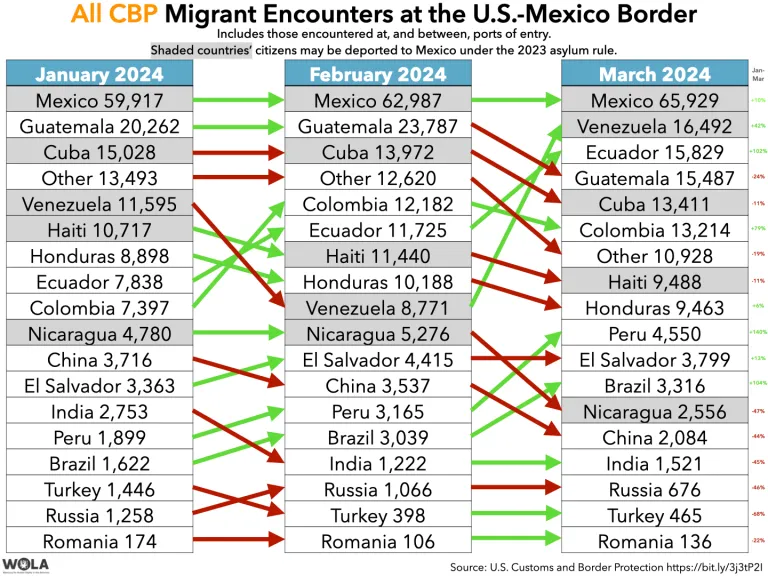The Latin American Report # 232

Ecuadorians back Noboa in security referendum
Ecuadorian citizens approved 9 of the 11 questions included in a referendum focused on security issues, promoted by President Daniel Noboa. The most important question, that may have prompted a strong reaction from organized crime since January, was related to the potential extradition of Ecuadorian nationals. There was solid support for this and the rest of the questions approved by the citizens—involvement of the Army in matters of internal order, increased penalties for certain crimes, among others—, while the two questions that fell into the fields of labor and international law, respectively, were rejected. The country continues to be entangled in a bloody spiral of violence closely linked to drug trafficking, which grew after the departure from power of former president Rafael Correa. On the same Sunday, the director of a prison in the coastal province of Manabí was massacred in a restaurant where he was sharing with his family.
 Source
SourceThe migratory issue in Cuba: a current perspective
The migration discussion is still very present in Cuban reality. Last week a Cuban delegation traveled to Washington to hold a new round of bilateral migration talks, chaired by the Vice Minister of Foreign Affairs, Carlos Fernández de Cossío. There, the Cuban government reaffirmed its commitment to guarantee "a regular, orderly and safe migration", and also expressed its concern about the policies of encouragement to irregular migration advanced by the White House.
In this regard, the Cuban delegation emphasized the impact of the sanctions regime coordinated by the U.S. Treasury Department, but also the validity of the Cuban Adjustment Act, which confers special privileges to Cuban migrants in the interest of sustaining a flawed political narrative. What would become of the U.S. Southwest border if such legislation were to apply to other countries? Cuban Foreign Ministry officials also highlighted the importance of the reinstatement of non-immigrant visa processing at the U.S. embassy in Cuba, suspended by the Trump administration under the assumption that Havana had some level of involvement or knowledge in the so-called "sonic attacks" against U.S. diplomats, a topic I have discussed here on other occasions.
.@CarlosFdeCossio comment about the immigration talks held today between #Cuba and the United States in Washington D.C. pic.twitter.com/LG0lFBE1ru
— Cuban Embassy in US (@EmbaCubaUS) April 16, 2024
Cuban migration inscribed in its regional context
During 2023, Cuban migrants constituted the third national group with the most refugee applications in Mexico, with close to 18,400. However, many of the Venezuelan, Ecuadorian, or Colombian migrants who pass through Mexico do not register with the Aztec immigration authorities. It should be noted that 328,650 Venezuelans, 57,250 Ecuadorians, and 18,840 Colombians passed through Panama irregularly last year after crossing the Darien Gap. The vast majority were headed for the U.S. border.
Another important point of the Cuban migratory dynamics is that, despite its manipulation, the reasons that lead Cubans to emigrate are fundamentally economic. In other words, in principle, they do not differ from those that drive other Latin American migrants, who in any case often flee from much more worrying security contexts, marked by the violence of criminal gangs, drug trafficking, and extortion. Of the Cubans arriving in the United States, only a minority have a real history of political or other persecution that would allow them to pass a serious credible fear screening.
Cuba's deputy foreign minister tells @camiloreports the Cuban government is willing to accept more deportations from the U.S. But he also called on the U.S. to lift its embargo on the island, blaming it for an exodus of migrants. pic.twitter.com/ZPtKA4j7gW
— CBS News (@CBSNews) April 17, 2024
On the other hand, in December 2023, more Mexican, Venezuelan, Guatemalan, and Honduran nationals arrived at the U.S. border than Cubans, while the number of Ecuadorians was virtually the same. And if in the first two months of this year, Cubans were third in the ranking after Aztecs and Guatemalans, in March the islanders arrived in smaller volumes than Mexicans, Venezuelans, Ecuadorians, and Guatemalans. They only "outnumbered" Colombians by 200. Finally, since the establishment in January 2023 of a humanitarian parole program by the Biden administration, and up to last March, some 86,000 Cubans have been approved as beneficiaries.
 Source
SourceAnd this is all for our report today. I have referenced the sources dynamically in the text, and remember you can learn how and where to follow the LATAM trail news by reading my work here. Have a nice day.


Congratulations, you received an ecency upvote through the curator @ahmedhayat. Keep spreading love through ecency